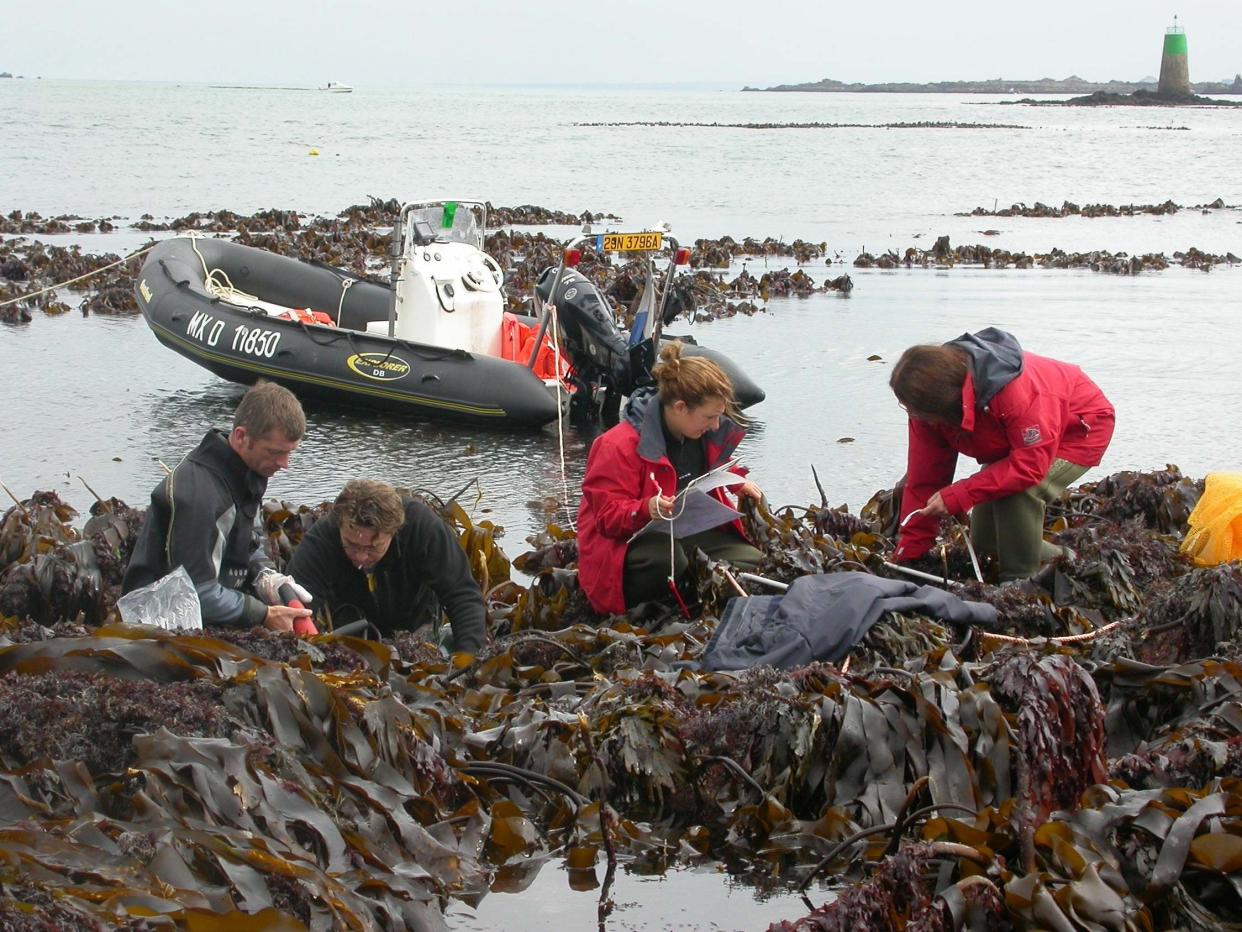Kelp species found off UK coast ‘survived 16,000 years since last ice age'

A species of kelp found off the UK coast has survived since the last ice age some 16,000 years ago, according to a new study.
Scientists made the discovery after analysing the genetic composition of oarweed from 14 areas across the northern Atlantic Ocean.
Dr Andrew Want, a marine ecologist at Heriot-Watt University’s International Centre for Island Technology in Orkney, collected one set of samples a few minutes from his home in Kirkwall Bay.
He described the finds as “refugee populations that managed to hang on and survive amid dramatic changes”.
Dr Want said: “As the ice sheets retreated from northern European shorelines at the end of the most recent ice age, oarweed distribution followed and recolonised the higher latitudes of the Atlantic.
“Kelp plays a critical role in the Atlantic so it is important to understand what affects its distribution and survival over time and how sensitive it is to change.”
The analysis, by experts from Heriot-Watt, the University of the Algarve in Portugal and Station Biologique de Roscoff in France, revealed three distinct genetic clusters. One was found along the eastern seaboard of Canada and the US, one in central and northern Europe and a compact population around Brittany.
It also showed the oarweed in Scotland and Ireland was more closely related to populations in the high Arctic than to a closer Brittany cluster.
However, Dr Want said the “unique Brittany gene pool” was projected to disappear as a result of the climate crisis.
“This provides further evidence of the loss of biodiversity expected with rapidly changing marine temperatures,” he said.
Dr Joao Neiva from Algarve’s Centre of Marine Sciences said the study offered hope that marine organisms can adjust to shifting climates by migrating towards the poles.
“These migrations provide a mechanism by which marine life buffers the effects of global climatic shifts, and how they can compensate for predictable contractions at warmer limits as the modern climatic crisis unfolds.”
Read more
How Arctic kelp forests are expanding thanks to global warming

 Yahoo News
Yahoo News 
